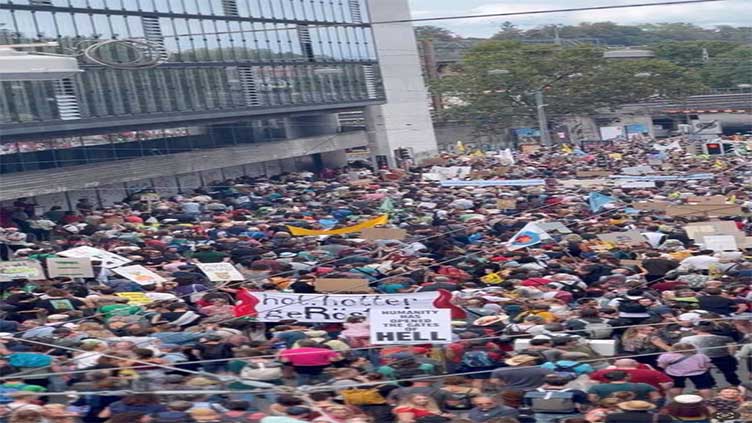Protesting farmers have France's government in a bind

World
Protesting farmers have France’s government in a bind
PARIS (AP) — Farmers have captured France’s attention by showering government offices with manure and besieging Paris with traffic-snarling barricades of tractors and hay bales.
The farmers say their protests aren’t a moment too soon. Grievances have long been brewing in the European Union’s leading agricultural power.
The Russian invasion of Ukraine has caused painful economic shocks, including higher costs, bringing farmers’ anger to a head in France and other European countries. Climate change and pressure for more sustainable and more productive agriculture are also squeezing the 500,000 or so French farmers, who already have to compete against counterparts from far afield.
Here’s a look at the movement, its origins and future:
Protesters say it’s becoming harder than ever to make a decent living from their fields, greenhouses and herds. For the worst off, it’s impossible.
Energy costs surged with the Feb. 2022 launch by Russia of full-scale war in Ukraine and hit hard for farmers reliant on tractors, harvesters and other fuel-guzzling equipment. Prices also soared for other inputs that underpin intensive farming, notably fertilizers.
French farmers were already struggling to compete in the increasingly globalized economy.
To cite just two examples, chicken imports have surged and imports of cherry tomatoes from Morocco have exploded from 300 tons to 70,000 tons per year since 1995, according to a Senate study in 2022 about the dwindling competitive strength of French farms.
“Everything we warned of 30 years ago is coming true,” said Damien Brunelle, a farmer of cereals and other crops in the Aisne region northeast of Paris. “Our countryside is emptying.”
“Everything we buy has gone up,” Bruelle said. “But we’re not getting the same revenue.”
When the Ukraine war pushed up prices, Brunelle got 400 euros (US$430 at current rates) per ton for the wheat he grows, he says. A ton now brings him less than half that: 190 euros.
Another common grievance from protesters is that they’re being suffocated by red tape and tied down by French and EU rules that govern farming, land use and the distribution of billions of euros (dollars) in agricultural subsidies. Farmers complain that they’re losing to rivals from countries with fewer constraints and lower costs.
On the barricades, Ukraine in particular is on some protesters’ lips. Fast-tracked for EU membership talks, it’s seen as a potentially fearsome rival with its vast fields of grain and other agricultural products that have flooded into Europe since the invasion.
“We’re worried because they don’t have the same regulations as us,” said Stéphanie Flament, a farmer of cereals and beets east of Paris. “It will be cheaper for the consumer, so where will consumers or companies turn to process flour and so on? To products that cost less.”
HOW BIG ARE THE PROTESTS?
In terms of numbers, the movement has attracted fewer protesters than the yellow vest demonstrations against economic injustice that gripped France in 2018-2019 and lastingly dented the popularity of President Emmanuel Macron.
Nor are these protests as disruptive or widespread as violent unrest that swept the country last year after the fatal police shooting of a teenager with North African roots, Nahel Merzouk.
But by using their lumbering agricultural vehicles to slow and block traffic and deposit stinky piles of agricultural waste outside government buildings, protesters have made themselves impossible to ignore and hard for police to stop.
The movement had a low-key start, with protesters turning roads signs upside-down to denounce what they argue are nonsensical agricultural policies. When that failed to get much attention, they brought out the big guns, their tractors.
This week, the farmers encircled Paris with barricades on major highways leading to the capital, ratcheting up pressure on Prime Minister Gabriel Attal.
“We are obliged to make a show of strength and have clashes to be heard,” Brunelle said.


